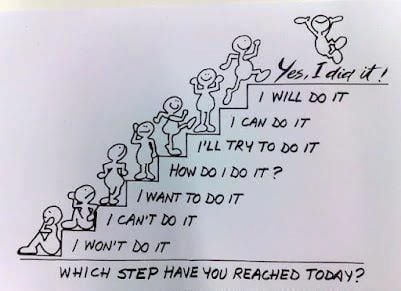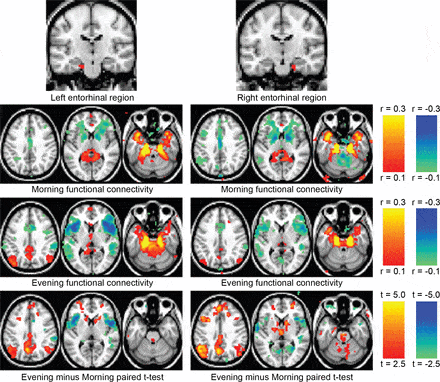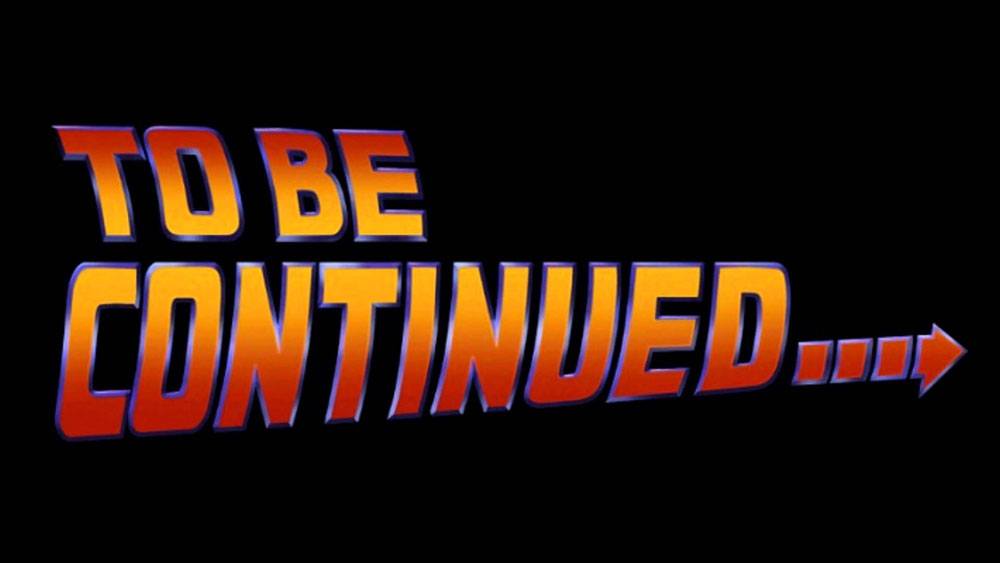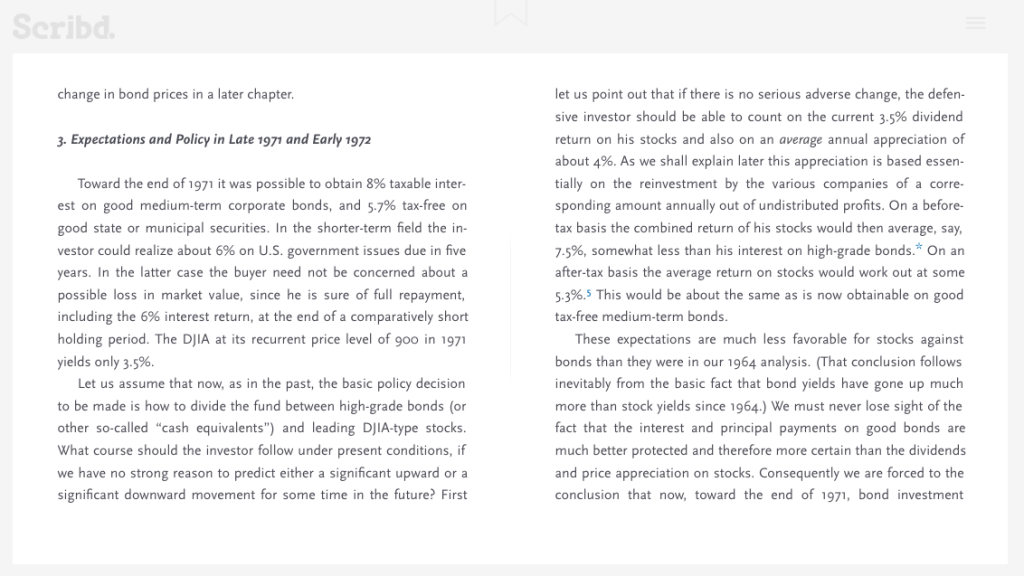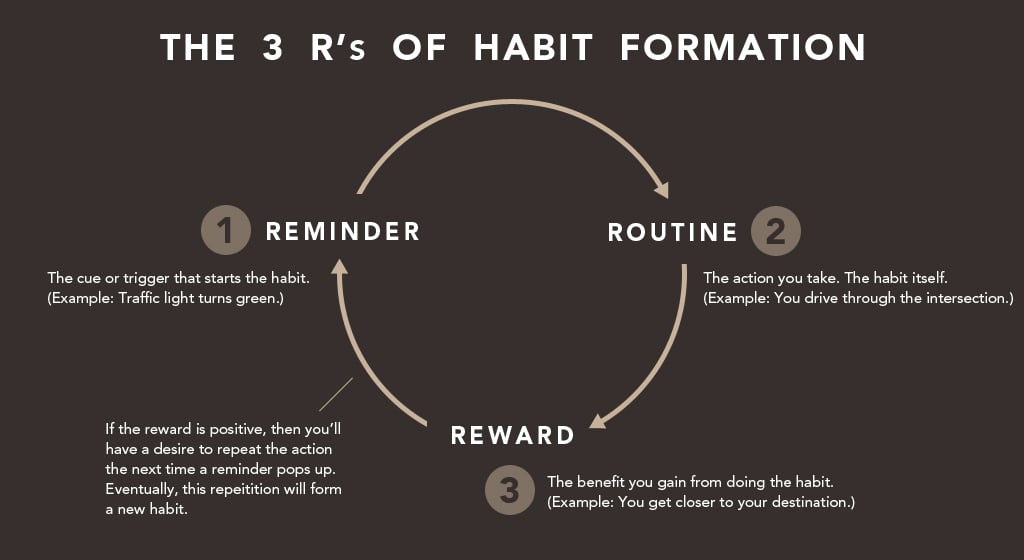Unlike articles that can be written in a matter of hours, well-written books take several years of research, writing, and editing. And because there’s more thought that goes into publishing a book, it’s that much more valuable.
While the value of books haven’t changed, studies show that the number of people reading books have been decreasing.
You’re probably not too surprised by these findings because of the information era we live in today. It’s just not as easy to sit down and read a book when you’re being distracted by your smartphone every five minutes.
Fortunately, there are powerful hacks to trick our own brain to form positive habits, such as reading more often.
Here are 5 powerful mind hacks that you can use to read more books.
1. Start with small steps
Starting a book from the beginning can feel intimidating, especially if it’s been a while since we read a book.
Taking small steps is applicable to achieving just about any goal, because it allows us to gain momentum without overwhelming ourselves. Scott H. Young has a great article you can check out here about taking small steps.
Let’s put two people side by side:
- Person A: Reads 10 minutes every single morning consistently without ever missing a day
- Person B: Read for 3 hours straight every few weeks
Who do you think will still be reading a year from now?
Jack Cheng says that 30 Minutes A Day is enough to form a new habit. He shares in this post:
“When mastery is the goal, spending an exorbitant number of hours in one sitting will likely lead to burnout. We don’t go to the gym expecting to put on 20 pounds of muscle in a single, day-long workout. Instead, we do several short workouts a week, spread out over months.
Our bodies need time to heal; our muscles time to grow. And the same goes for that muscle inside your skull. When trying to develop a new skill, the important thing isn’t how much you do; it’s how often you do it.”
Developing the “muscle inside your skull” requires diligent action every single day, no matter how small the progress.
Small steps add up fast, and small pages add up to many books.
Don’t wait until tomorrow. Get started now. Then do it again tomorrow.
2. Do It Early
According to Kathleen Vohs, an associate professor of marketing at the University of Minnesota, “people still have the same self-control as a decade ago, but we are bombarded more and more with temptations”
“Our psychological system is not set up to deal with all the potential immediate gratification.”
We need to exert our limited willpower more than ever today, if we want to avoid distractions and stay focused on the task at hand. Since willpower is finite, we need to identify the times of the day when it’s at its highest.
Studies show that early in the morning, just after waking, is the time of the day when the prefrontal cortex is most active (a key element to the creative process).
What can we take away from this?
If reading is a task that requires some form of willpower, then doing it early in the morning gives you the best chance of reading more books. Because you’ll be the most creative at this hour, you may also be able to generate more ideas during your reading.
3. Stop before you’re finished
Have you ever been interrupted when you were in the middle of something important? Not the best feeling in the world, is it?
According to the Zeigarnik Effect, you are much more likely to recall uncompleted tasks than one you completed. In a 1927 study, Russian psychologist Bluma Zeigarnik asked subjects to complete a set of tasks. During some of the tasks, the subjects were interrupted before they could finish. When asked later about the tasks, they recalled the tasks during which they were interrupted at a much higher rate than those they were able to complete.
Hollywood was one of the first industries to take advantage of the Zeignarik Effect in humans, by introducing cliff hangers to TV shows and movies.
There’s just something about our brain that needs the story to be completed.
Knowing this pattern of our brains, we can try to trick it by forcing cliffhangers when we’re reading books. This is something I’ve personally been experimenting myself.
I personally read a lot of books using an app called Scribd, and I try to finish a few pages before the chapter or large section ends. The bigger the climax, the more I try to force myself to stop reading. It kills me every single time, but it also forces my brain to continue where I left off, and it’s been an effective strategy to be more consistent with my reading habit.
Try it for yourself!
4. Use Triggers to Your Advantage
If you’re like me, then you’ve probably started a habit only to forget about it a few days later. I’ve done this several times with books, even after a great reading session.
To combat this, you can use triggers to your advantage. A trigger (or cue) is what Charles Duhigg, author of Power of Habits, calls the event that starts the habit.
We’ve already shared one trigger you can use to your advantage — time.
After a few weeks of reading consistently each morning, your brain will be automatically triggered the following mornings to begin reading.
Another powerful trigger is a visual trigger. You may have heard about the positive benefits of laying out your clothes the night before, if you want an easier time waking up. You could apply the same strategy for books.
If you enjoy reading physical books, you can leave your books in places where you’ll be able to visually spot it everyday, such as your desk.
If you enjoy reading books digitally like I do, you could pin your tab so it’s always in your visual perspective.
Since over 90% of the work I do involves using my browser, it makes it hard to forget that I have to continue where I left off in the book.
5. Read for Immediate Rewards
There’s no shortage of studies that show the correlation between human behavior change and immediate rewards. One study was done by researchers at Harvard University, where many people who were offered the choice of $10 today or $11 tomorrow chose to receive the lesser amount immediately.
Receiving immediate rewards releases dopamine in our brains, which compels us to seek more of the activity at hand.
Countless studies have shown that a cue and a reward, on their own, aren’t enough for a new habit to last. Only when your brain starts expecting the reward — craving the endorphins or sense of accomplishment- — will it become automatic to lace up your jogging shoes each morning. The cue, in addition to triggering a routine, must also trigger a craving for the reward to come.
Applying this mind hack to books, we want to be reading about topics that we can immediately apply to improve our lives. For example, if you’re facing some financial problems, you’ll receive immediate rewards by reading a personal finance book. Or if you’ve just started a new company, then reading books like The Lean Startup or The Business Model Generation may give you immediate benefits.
Over to you
Which of these mind hacks do you think will benefit you the most to read more books?
Is there anything that we missed that you can share with us?

